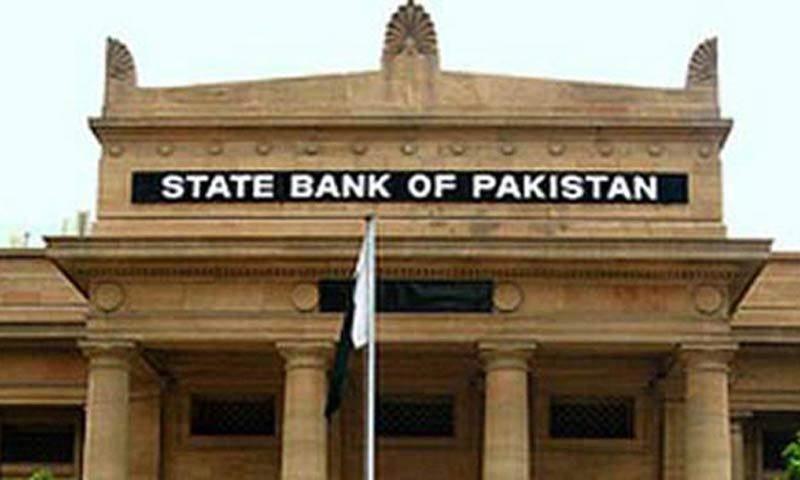
State Bank of Pakistan ends low interest rates to fight inflation
Four factors led SBP to make the hike: "The Pakistani rupee has depreciated by around five per cent, imported international oil pries are hovering near $70 per barrel, a number of central banks have started to adjust their policy rates upward and the fact that it is adversely affecting the Pakistani rupee interest rate differential vis--vis their currencies."
"Multiple indicators show that the output gap has significantly narrowed, indicating a build-up of demand pressures," it added.In its determination to raise industrial output and gear up businesses all around, the SBP kept the benchmark interest rate at 5.75 per cent for the last 21 months, or since May 2016. At this level, the rate was at a 43-year low. Pakistani industry and business had fought atrocious rates of as high as 17 per cent previously. That constantly hit industrial output and made Pakistani products uncompetitive internationally.
And there are four more good news.One, home remittances of Pakistani workers rose 2.5 per cent in the first half of FY-18 over the same period of FY-17.
Two, exports' growth touched a seven-year high of 10.8 per cent in the first half of FY-18, compared to a drop of 1.4 per cent in the same period of FY-17. The Pakistan Bureau of Statistics reports that exports in the July-December FY-18 period rose to $6.64 billion, compared to $6.15 in the same period of FY-17.Three, there are hot favourites in future growth. Investments relating to the China-Pakistan Economic Corridor (CPEC), construction and its allied industries will "maintain their higher growth momentum". Larger FDI inflows are projected for CPEC-related projects and others.
Four, the SBP projects GDP growth for FY-18 at 5.8 per cent, higher than the 5.3 per cent in FY-17,but less than the targeted six per cent. The bank reports the the current account deficit, which widened 1.6 times to $7.4 billion in the first half of FY-18, will be reduced by a larger inflow of home remittances sent by Pakistanis working in other countries, besides larger FDI inflows, rising exports, as well as more official aid flows. The SBP's liquid forex reserves as at January 19, were $13.5 billion.The SBP listed four key elements that led it to make an upward revision in the benchmark interest rate. These elements appeared on the business scene since in November 2017, while the new government of Prime Minister Shahid Khaqan Abassi was trying to settle down in the saddle, on the back of the highly-debatable removal of pro-business former prime minister Nawaz Sharif. The controversy, surrounding Sharif may persist until July 2018, when elections of the national parliament will be held.
SBP Governor Tariq Bajwa, explaining the policy rate statement said: "We have made an exchange rate correction in one go to bring stability in the forex market. It is the right time to make a policy decision that will balance growth and stability in the medium to long term in order to pre-empt an overheating of the economy and inflation breaching its target rate."What is the worrying thought? It's the rising trajectory of inflation that has hit the middle and lower-middle class. Bajwa confirms it: "The average headline inflation remains within the forecast range of six per cent, but the core inflation has continued to rise." In July-December FY-18, it was at 3.8 per cent.
The same day as the monetary policy was announced (January 26) Fitch issued "a negative outlook for Pakistan". This downgrade brought the Pakistan Stock Exchange KSE-100 index to 44,551.13 points, down 0.59 per cent. The KSE-100 on February 2 was at 44,255 points.Abbasi, the same day, felt quite happy over his discussions with international investors, who promised to invest more in Pakistan. These talks took place at Davos, Switzerland, where he was attending the annual World Economic Form. The investors included Bill Gates and Malenda Gates; Jean-Yves, CEO of Veon Group; Ken Koyabashi, chairman of Mistubishi Corporation; Hiroyuki Ishige of the Japan External Trade Organization; Claudio Descalzi, CEO of ENI; and a number of other big business leaders.
Abbasi also told the WEF session that the CPEC, now under a fast-track implementation, will "provide high dividends for the investors and the countries, in the shape of employment generation, industrial growth and connectivity".He expressed confidence in the Chinese leadership and in its One-Belt One-Road initiative, to bring together the "EU and the rest of the world with Pakistan, China and the countries en route for a fast economic growth".
While the SBP says the lowering of the interest rate and "the one-go rupee depreciation" will move the economy forward, others in the business field take the situation differently. Babar Khan, CEO of the Multinational Export Bureau, says: "We will definitely benefit from the sharp appreciation of the euro against the rupee."But Fawad Anwar, managing director of Al Karam Textile Mills, says: "We have stopped finalising business deals in euro due to its sharp fluctuations. We have switched over to dollars, mainly because of its stability."
"However, the rupee devaluation against the dollar will positively affect all Pakistani textiles."What will be the actual impact of the new monetary policy, the bank rate increase and the fate of the rupee? It will be known in the weeks to come. Everyone is waiting to see it.
The writer is based in Islamabad. Views expressed are his own and do not reflect the newspaper's policy.

Legal Disclaimer:
MENAFN provides the
information “as is” without warranty of any kind. We do not accept
any responsibility or liability for the accuracy, content, images,
videos, licenses, completeness, legality, or reliability of the information
contained in this article. If you have any complaints or copyright
issues related to this article, kindly contact the provider above.


















Comments
No comment